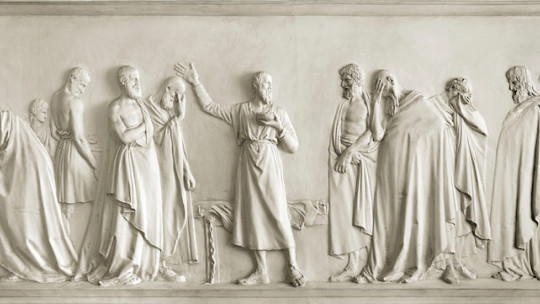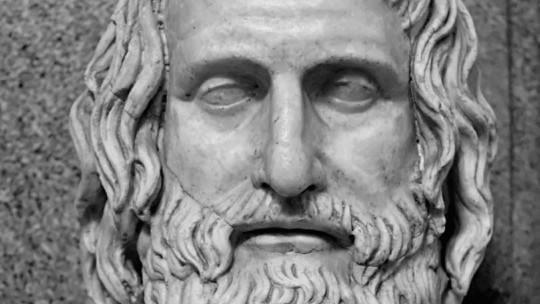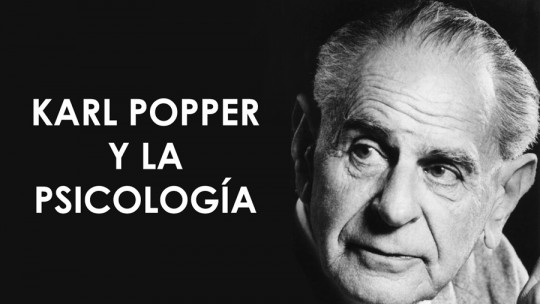
Philosophy is the mother of all sciences. Regardless of the specialty we deal with and whatever the object of study, just like philosophy, science is based on the search for truth and knowledge, or on its practical application. In this way, it is common that we often find concepts and perspectives coming from philosophical thinking in scientific theories.
One of the best-known and most important classical philosophers is Socrates, whose contributions have contributed to the generation of different techniques and ways of thinking about the functioning of the world and the mind. Let’s see in this article some of the main contributions of Socrates to Psychology.
Socrates, the philosopher
One of the greatest Greek philosophers (in fact philosophers before him are sometimes called pre-Socratics), Socrates was born in Athens during 470 BC, with a midwife mother and a sculptor father. Although the details of his life are doubtful, the different writings indicate that this man from a humble family had great ingenuity since childhood, training in different disciplines such as literature and music. His participation in different wars as an infantry soldier is known, as that of the Peloponnese, and that he married a woman named Xanthippe.
Regarding his thinking as a philosopher, Socrates He stood out for focusing his attention on the field of morality and ethics He considered that human beings tend towards good and that all vice is a product of ignorance. He believed that good, love, kindness and ethics started from universal definitions. His position was opposed to the relativism advocated by the sophists. He also believed that the philosopher must seek wisdom in virtue, and to achieve it it is necessary to recognize one’s own ignorance.
He did not consider himself wise, and believed that most people believed they knew more than they really did. Thus, He used irony and dialogue in order to expose the contradictions of his interlocutors and make others see the level of knowledge they really possessed.
His thought
Despite believing in the existence of universal definitions, he is considered a precursor of inductism, in the sense that he considered that universal concepts should be obtained from the simple to the complex, from the particular to the general Each person must ask their own questions and form their own way of seeing the world, each time reaching a greater understanding of how it works.
Also his use of maieutics is famous which is based on answering other people’s questions with other questions so that the individual himself elaborates his own answer.
This philosopher did not write or transcribe his reflections considering that each individual must form their own ideas. His work has reached us through the different disciples, and especially through Plato, who reflected and deepened in his work some of the concepts stipulated by Socrates…
Socrates He was tried and sentenced to death by hemlock poisoning, accused of corrupting young people and not accepting the deities of the Athenians. He died in 470 BC
Contributions of Socrates to psychology
The progressive advance of science and its search for objectivity can make it difficult for many to observe the relationship between the current state of matter, in this case psychology and philosophy. However, Socrates’ contributions to both this and other sciences are of great value and importance. Below we indicate some of these contributions.
1. Interest in the psyche
Socrates and his disciple Plato worked and reflected on the existence of the psyche, what they considered the soul The influence of this fact on the current science of psychology is evident, its birth being the product of reflection on the contents of our mind derived from these and other authors.
2. Ethics and morals
Socrates focused his thoughts on ethics and morality. The behavior of the individual in society and the formation of behavioral patterns, attitudes and values are some of the many aspects that psychology deals with.
3. Inductive method
Socrates is considered one of the precursors when it comes to the creation of the inductive method, by claiming that people access the knowledge of the truth through their experience instead of starting from assumed and accepted knowledge. This method is of great importance in turn when generating the scientific method, characterized by hypothetico-deductive reasoning.
4. Socratic method
The Socratic Dialogue It is a strategy based on Socrates’ maieutics that continues to be used even today in the practice of psychology, being basic in multiple therapies. It is based on asking inductive questions: the therapist asks different questions with the aim of making the subject reflect and find their own answer to what was raised.
5. Precursor of constructivism
Constructivism is based on the creation of knowledge through generating shared knowledge that in turn depends on the subject being able to make sense of the learned material. Socrates considered that it was necessary to teach not what to think, but how to do it This consideration is linked to constructivism’s search for the student to generate his or her own learning process, thanks to the application of various aids offered by the medium. Thus, as Socrates proposed, the teacher must help the student to generate his own knowledge of it.
6. Use of irony: Confrontation
Socrates was characterized by making use, in his dialectical method, of irony The aim was to make the subject who considered himself wise see the contradictions existing in his speech and to refute his biased arguments so that he would be aware of his true level of knowledge.
A similar strategy is sometimes used in therapy **, confrontation, in which the contradictions existing in his speech or between his speech and his behavior are exposed to the subject in order to make him aware of them.








